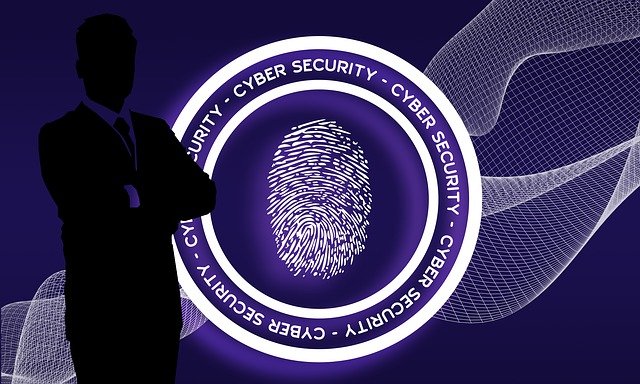How To Become A Cybersecurity Lawyer
Cybersecurity lawyer job profession has become one of the most up and coming legal specializations simply because there is a great and ever-increasing need for cyber protection and cyber law in the current day and age. Everyone from private individuals to large corporations is operating via the internet whether it is sharing personal data, carrying out financial transactions, selling products and services, or communicating. A cybersecurity lawyer can usually take two routes, one is of the litigator and the second is of the advisor. But how to proceed on these career paths and what is the cybersecurity lawyer salary?
Table of Contents
Litigators technically also provide advice along with going to court or sitting in arbitration in lawsuits pertaining to copyright infringement for example. Advisors are sometimes hired in larger firms and companies to provide advice whenever needed regarding various matters from protecting intellectual property to tracking down and suing hackers. Cybersecurity law advisors however will rarely go into court or fight for damages.
Having The Degree
Practicing the law always requires a legal education. And is not a set of skills to learn by yourself or a freelancing profession. Every cybersecurity lawyer will need a general undergraduate degree to teach them the basics and they will have the liberty of taking. Or looking up extra courses pertaining to cyber law along the way. Many law students do undergo internships during their course of study. As well as online courses and short diplomas in areas of the law that interest them.
Having a master’s in law or MLS in which you can choose cyber law as your major is an asset for obtaining a job in a large firm or corporation: So that you can earn higher cybersecurity lawyer salary. A master’s is a more comprehensive and narrower field of study that leans more toward analysis, practical knowledge, and experience. A JD or Doctor of Jurisprudence degree is a favorite one among students of cyber law. Because it is short with simpler requirements. Students can get right into practicing law if they have passed the bar.
After your JD or even in lieu of it you can do your LLM. It is a degree that focuses primarily on one area of the law and you can choose that area to be cyber law. Legal structures and workings are more thoroughly explained in an LLM. And a student will gain lot of practical experience in researching for and building a case.
An SJD or Doctor of Juridical Science is the highest you can go qualification wise if you are keen to pursue the journey of a cybersecurity lawyer. Getting into an SJD is difficult as it relies on accumulated expertise such as a student has written and published several journal articles and legal papers.

Other Routes For Cyber Law Specialization
Academic specialization is one thing but regardless of the area of the law, you have already studied such as if you were one of the Ocala criminal lawyers or practiced criminal law in any other state, there are other routes you can take to become a cybersecurity lawyer.
- A large part of becoming a cybersecurity lawyer is knowing about the world of cybercrime and mechanisms of protection. IT training can come in very handy when you are working on cases of data breach or loss or suing a hacker. Because an effective defense is mounted on an effective understanding of the crime or infringement. IT courses can of course be fairly comprehensive and take a long time. So look up shorter online versions or choose an area of IT such as systems management.
- Taking short courses such as those related to networking, online privacy, basics of cyber law. And so forth can wonderfully supplement your existing knowledge or qualification in law. And this will enable you to practice or train as a cybersecurity lawyer.
- IT certifications are short and effective ways to grow your knowledge about cybersecurity. And ask for higher cybersecurity lawyer salary. Certifications or trainings are shorter than courses. But they offer practical exposure such as teaching you about digital forensics, penetration testing, and incident management. You are unlikely to ever need to practice any of the above skills. But your knowledge will set you apart when you are fighting cases. Pursue cybersecurity related courses as much as you can. Because if you end up working in a legal capacity for an IT firm, they wouldn’t want to be disappointed in learning that you know little of the workings of cybersecurity itself.
A Great Career Path for Cybersecurity Lawyer
The demand for cybersecurity lawyers is greater than ever. But there is a void between knowing how to enter the cybersecurity world and showcase oneself as an expert and give legal counsel on complex issues. Cybersecurity lawyers, therefore, need IT training and certifications to bridge that gap as mentioned above and get high cybersecurity lawyer salary band. Recent market projections (of the past couple of years) show that the need and demand for cyber law specialists are likely to increase dramatically. This is due to the new hacking and malware variants that are emerging. And how cybersecurity is becoming a vital part of running a business or even managing personal data and accounts.
An undergraduate degree in information security or related fields can be an option for a new lawyer. And even non-lawyers can take up cyber law courses and work as a paralegal or legal assistant in most firms. When looking for well-paying jobs in your location, use reputable databases and platforms like Higher Hire to find the best opportunities for where you are in your career.
For people who have done a basic law undergrad, cybersecurity is a field with a lot of potential for growth not just in terms of market value but in terms of personal development and growth as cyber laws are always a hot topic for debate. New ones will work to mitigate and combat the variety of threats we all face from the cyber world. So a cybersecurity lawyer is unlikely to ever get bored on the job. Global figures depict a near $200 billion market opening up within the immediate future for cybersecurity related IT fields and litigation.

Magdalena Polka is a Business Solution Designer and an Information Technology / Project Management consultant and author with over 15 years of software development, management and project management experience.










